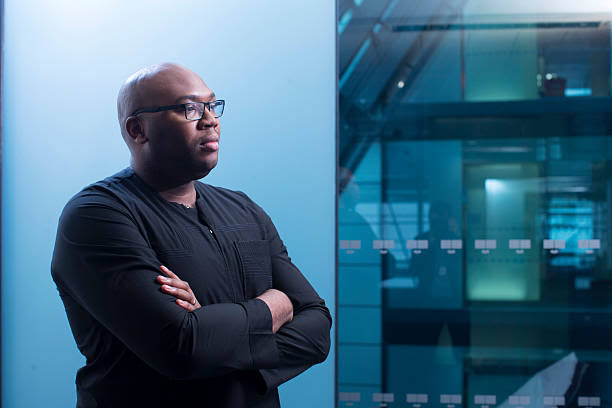CEO of IrokoTv, Jason Njoku, has opened up about shutting down his paid Tv App in Nigeria
The CEO who was hailed to be the first Nigerian to launch a paid tv service app in the country, has counted his woes in trying to sustain the business
Writing on his website, Njoku.org, Jason Njoku described the company’s $100 million investment in the local market as a costly mistake.
He said the platform, which was founded in 2011 and launched in 2015, was operating in “full survival mode” in the first ten years.

Njoku said the company was faced with several obstacles
and struggled against competitors like Netflix, Amazon, Showmax, and Iflix.
The article titled, “STREAMING IN NIGERIA. DID THE MARKET WIN?” was published in March 2025
but is gaining traction now as Nigerians discuss iROKOtv after a court freezed Jason Njoku’s bank accounts amid debt crisis
Also Read:
Niyi Akinmolayan Says Naira Devaluation Led To Netflix And Amazon’s Exit From Nigeria!
Falz Reveals Plans To Raise His Kids Outside Nigeria Due To Insecurity
Eid El Kabir: FG Declares Friday And Monday As Public Holiday
The Rise and Fall Of Jason Njoku’s IrokoTv
Jason Njokue wrote:
“Iroko’s first funding was in August 2011; our mandate was to build a large streaming business in Nigeria.
They invested $200 million in Netflix back in 2010 and then invested in IVI in Russia, YY in China, Netmovies in Brazil, and us in Nigeria.
“With super-expensive data bundles and inelegant payment options
(I remember waiting for Interswitch to enable us to integrate), our market took a while to mature.
In most opportunities, you can be too early or too late; only in hindsight can you gauge when the best time to strike would be.
iROKOtv was very early when we launched in 2011,
but we were fortunate that there was a ready-made international market in the diaspora who were willing to pay
and able to overcome any technical hurdles (payment/bandwidth/devices) to enable us to at least generate a sizable income.
Jason Njoku further shared the years they put into making it work
“We actually waited until 2015 (four years post-launch), building the product,
securing a sizable content library, and assembling a team to attempt to take on Nigeria and Africa.
Between the revenues we generated and the venture capital we raised ($35 million) over the first ten years, we easily spent $100 million trying to win.
“But we weren’t winning; we weren’t really losing either. We were just there, in full survival mode,
operating in the toughest conditions possible. Streaming, even domestically, is a scale game.
“Africa wasn’t immune to those costs. It’s incredibly expensive across marketing,
content, delivery, and product platforms. Our largest, most serious competitors were Showmax, Netflix, Amazon, and Iflix.
Collectively, they easily invested $1 billion or more from 2015 to 2023.
The Rise And Fall Of Irokotv
“During that period, we often had tense board meetings about why iROKOtv wasn’t succeeding;
it was challenging to feel that all my hard work and dedication were constantly reduced to ‘you’re not doing enough’.
“We have been, and remain, the most aggressive in trying to distribute content across Nigeria—
deploying hundreds of manned kiosks, teams of outbound contact centre agents,
creating agency networks, adjusting our product to prioritise Android downloads, and pioneering peer-to-peer file sharing.
The local market in Nigeria simply collapsed. We saw it and stubbornly decided to keep investing
and also doubling down until we were all tapped out, having burnt through most of the post-exit capital.
“To save iROKOtv, we considered crowdfunding, an AIM LSE listing (you could raise $10-30 million easily back then)
with relatively little revenue but a strong narrative.
“In the end, we raised $1.1 million in convertible notes, then recapped the company a year later and paid it back.
“In 2023, we finally accepted there was no market for paid premium services and exited Nigeria.
We haven’t processed any Naira payments there in almost two years.
“As I humbly survey the wreckage of the last 15 years of streaming in Nigeria and Africa,
it’s clear our (then $2k GDP per capita) was too small to support even a $5/mo product.
It’s also clear this wasn’t even a question of capital
You can read more of his article HERE